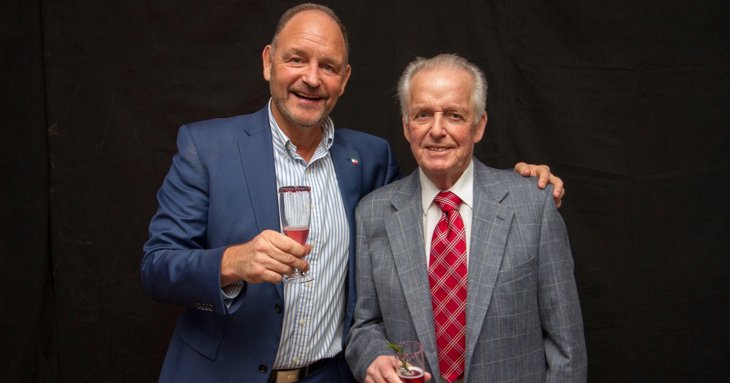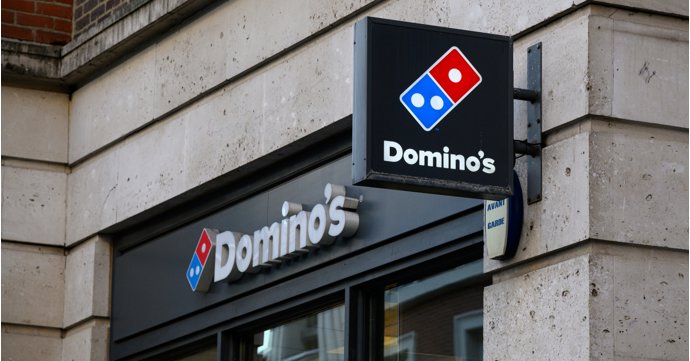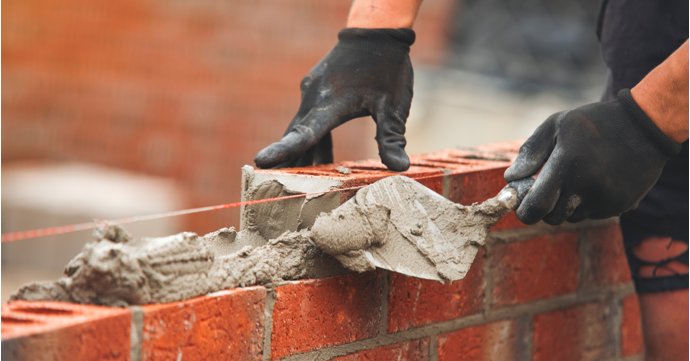When Cinderford bricklayer Keith Bell secured the contracting for a local housebuilder back in 1968, one of Gloucestershire's biggest and best known family construction firms, KW Bell, was born.
Fast forward nearly 60 years, the firm's impact locally, regionally and even nationally is there for all to see – providing skills, services and equipment for the south west's biggest housebuilders, developing its own high-end homes throughout Gloucestershire and Herefordshire and training future generations through its pioneering AccXel Construction School – with its latest annual turnover of £77 million earning it a place in the top 50 of the SoGlos Top 100 Businesses in Gloucestershire 2025.
SoGlos chats to CEO Peter Bell about everything from the simple ethos underpinning the firm's success, to eyeing future growth with new senior appointments – and why family and community remain as important today as they were at the outset.
Peter, tell us about the beginnings of KW Bell.
About 60 years ago, my dad had left school and he had to go down the pit – we come from a coal mining town. He came back and told his mother, 'Mam, this is not for me'. She said, 'I'm sorry, son, but you have to go down the mine because you have to put food on the table'. But he hated it that much, he decided to find something else.
He did some hod carrying, worked relentlessly with some local bricklayers at the time and he then became a bricklayer himself, before an opportunity came his way to take on the contracting for a company called Westbury Estates. He convinced them that he was the man for the job and the rest, as they say, is history.
As a bricklaying contractor he worked on a few small developments in the Forest of Dean, with probably 150 bricklayers working for him as subcontractors, supporting Westbury Estates; and the business basically grew from there.
How did it grow to becoming more than bricklaying?
After several years, dad decided, 'well, if I can do bricklaying, I can do scaffolding; I can do groundworks'. He employed a very clever guy by the name of Ashley Drew, who joined him from Westbury Estates. Ashley became his right hand man in the groundworks side of the business, around 45 years ago.
He then started to buy excavators to do those operations. Its a very tough industry, very easy to get wrong, very easy to go 'pop' if you don't know what you're talking about, because you're talking about large sums of money and big risks.
Then lo and behold, about 35 years ago he decided 'well, if I can do bricklaying and groundworks and scaffolding, I think I can start building homes', so he become a developer, hence the birth of Bell Homes.
So it came full circle – he went from a man with a shovel and a hod in his hand, to a trowel, to a brick laying baron, to a scaffolder, to a groundworker, to a housebuilder. He then started a plant firm alongside it and in the middle of all of that, thought 'why don't we buy a pub and turn it into a hotel?'

Tell us about your personal journey and how you came to lead the business.
Dad bought me a little pig farm when I was still in school – I was destined for Hartpury to become a pig farmer, that was my love. But then the day I left school, my dad asked me 'son, are you going to become a pig farmer, or are you going to come into the building with me?'. It took me about a nanosecond to make my mind up – I said 'I actually want to come into the building with you, Dad'.
So, no favours, he stuck a shovel in my hand and said 'there you go boy, you're on the tools' and I went labouring with the bricklayers. I then went from hod carrying into groundworks and then into scaffolding. So from the age of about 16 I spent about four years 'at the coalface', getting stuck into it.
And then just before my 20th birthday, dad decided that it was becoming a little bit too much for him on his own. He had his twin brother, John, with him managing the scaffolding part of the business and his other older brother, Colin was a contracts manager. But he brought me in, put me in a pickup truck and I started to manage sites in a supervisory role from the age of 19.
My skillset grew over a period of time. I had a very ordinary education – my strengths are maths and English, the rest of it, not that good. I didn't go to grammar school – my dad wanted me to, but I failed my 11 plus, so I basically got out there and learned the hard way. Ashley Drew mentored me quite a bit as well.

I became the managing director of the contracting business 25 years ago. Bell Contracting is the big animal – we're a £60 million business and we work for all the majors, your Barratts, your Persimmons, Taylor Wimpey etc.
At that same time, dad was then running the homes division and we both came together to run the plant division – the pub and the hotel was always dad's baby.
About 10 or 15 years ago, I educated myself by entering a group called Vistage – it's a peer group, effectively, of CEOs that join together once a month hold each other accountable. I learned so much in that five year period that gave me the skills that I required to take the business forward.
With my dad still around up until 15 months ago, I was still very much the champion of the contracting business and involved in the homes. I effectively became the CEO of the business the day my dad died.
KW Bell has always been family-run – how important is that ethos today, as a company with multi-million-pound turnover?
I think culture is everything. We explain this to everybody that works for us, that we are still very much a family business. We're an £80 million business, but the family culture that runs through its core is what we're all about – family and community.
It's not rocket science – I think you have to lead by example and treat people accordingly. And I like to think we treat people very well here because they are very much part of our family.
How would you describe your connection to the community at home in the Forest of Dean?
We're born and bred in a council house and proud of it. And I think because we know how fortunate we have been and how the community has stuck by us through thick and thin, we really want to be a part of that community – it's so important to us.
We're sponsoring Cinderford Rugby Club for £1.3 million to build a new 3G pitch – that for me is a legacy from me and my family for the youth of Cinderford, the girls and the boys, the junior and senior sides; and it'll be a legacy for the club to generate revenue. The football club too – my dad supported them passionately, we've probably put in £1 million over the last 10 or 15 years.
My dad was involved with everything. He was only the second person in the whole of the town to be granted the freedom of Cinderford for his services to charitable causes. Many a year ago at Christmas, it'd be snowing and my dad would be the first to get his diggers out clearing the roads so people could get around – we're just an ordinary family business that has done well; and our links to our community are very, very important to us.
Tell us about the origins of AccXel and why it's so important in today's industry.
First and foremost, AccXel is the brainchild of my daughter Nicola (Bird, founder and CEO). When she joined us as safety officer, then safety director and then business development director years ago, she recommended the need to train the next generation.
We work in an industry that's unfortunately not very good at training our own, like many others. We are one of a very small handful of businesses in the south of England, if not the only one, that's prepared to put at least £3 million of their hard earned money into creating a centre of excellence to help educate the next generation of skilled workers.

The journey from start to finish was certainly not for the faint hearted. It's all down to the determination of Nicola and Natalie (King, managing director and principal); and my wife, their mother, supporting them on their journey – you need tenacity, you need determination and you need grit to get past the hurdles they've had to.
Now they're there, AccXel is by a country mile the best training academy in our field in the south of England, if not the whole country. And what a joy to see it flourishing and being recognised for what it is by the industry.
We've got people like Sir Anthony Bamford (owner and chairman of JCB), one of the richest men in the country, putting their trust in Nicola and Natalie – we're the only subcontracted training provider for the JCB Academy.
I couldn't be more proud of what they've achieved and it's only going to go from strength to strength.
Lastly, what are your plans for the future of KW Bell in 2025 and beyond?
We've just employed a new managing director for the homes business, so that's the next stepping stone. Jon (Twamley) will bring all of his leadership skills from Barratt Homes.
Nicola has now become COO, which has brought an awful lot of joined up thinking between the contracting and homes divisions. We're doing everything we can to bring on the younger and the middle-aged guys in the business that have the hunger to take it forward.
It's a tough industry; the challenges are bigger than they were before. The poor practises of certain house builders, which I will not mention, have given the sector a bad name and rightly so. So the expectations on site now have gone through the roof – and we work and live in an age where the skillset has gone through the floor; and the two don't marry.
Growth for me – I'm a great believer in sticking at what you do, being consistent with your tendering process and delivery; being at the top of your game when it comes to safety and methodology; on top of all the latest technology and if you can make your business as efficient as it can be, you'll then automatically see some good organic growth.
But ultimately it's about keeping the clients happy and then developing your teams. We're not the sort of business that will grow by acquisition – we will grow organically, it'll be in a sustained manner. And that's the way I like it.






















